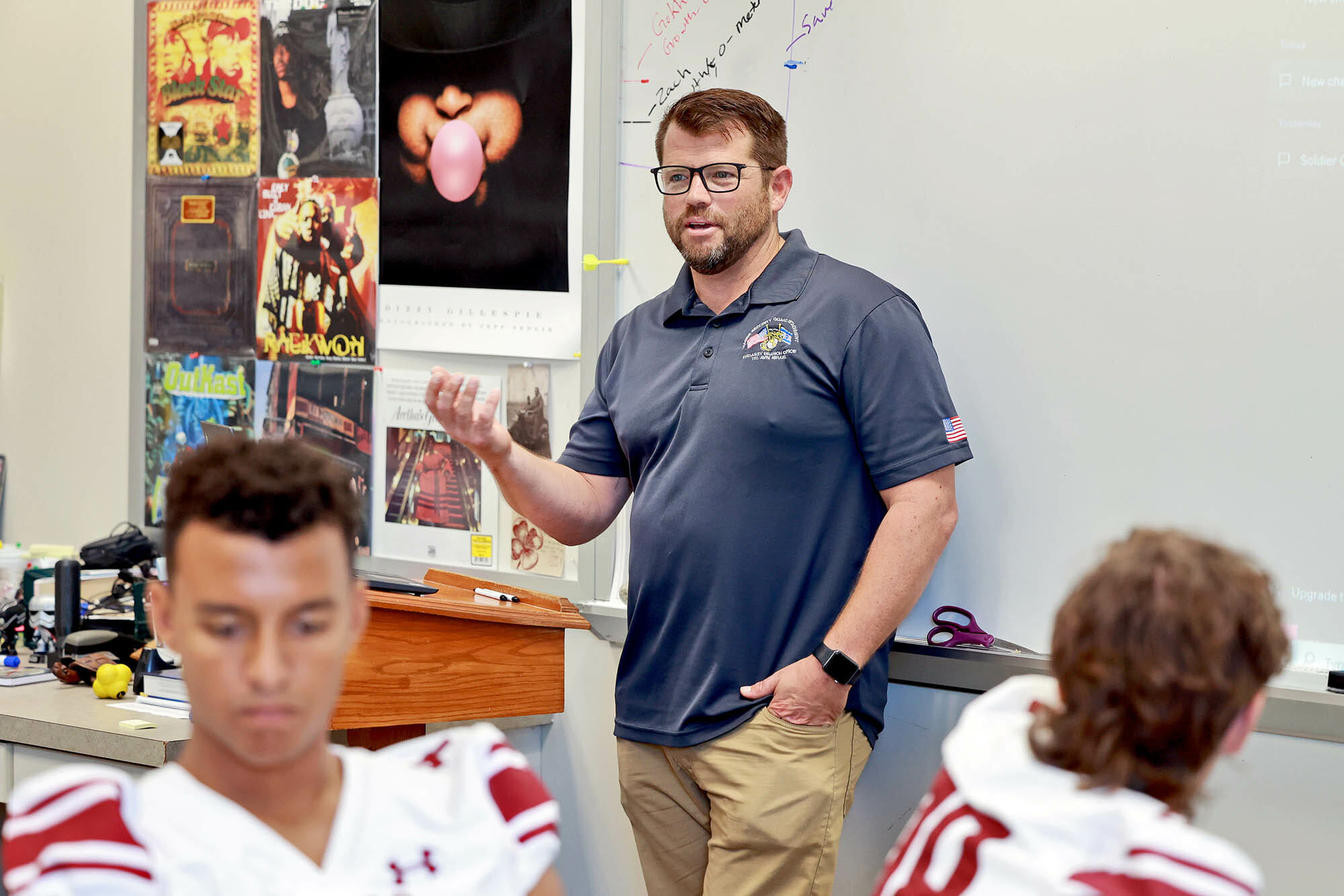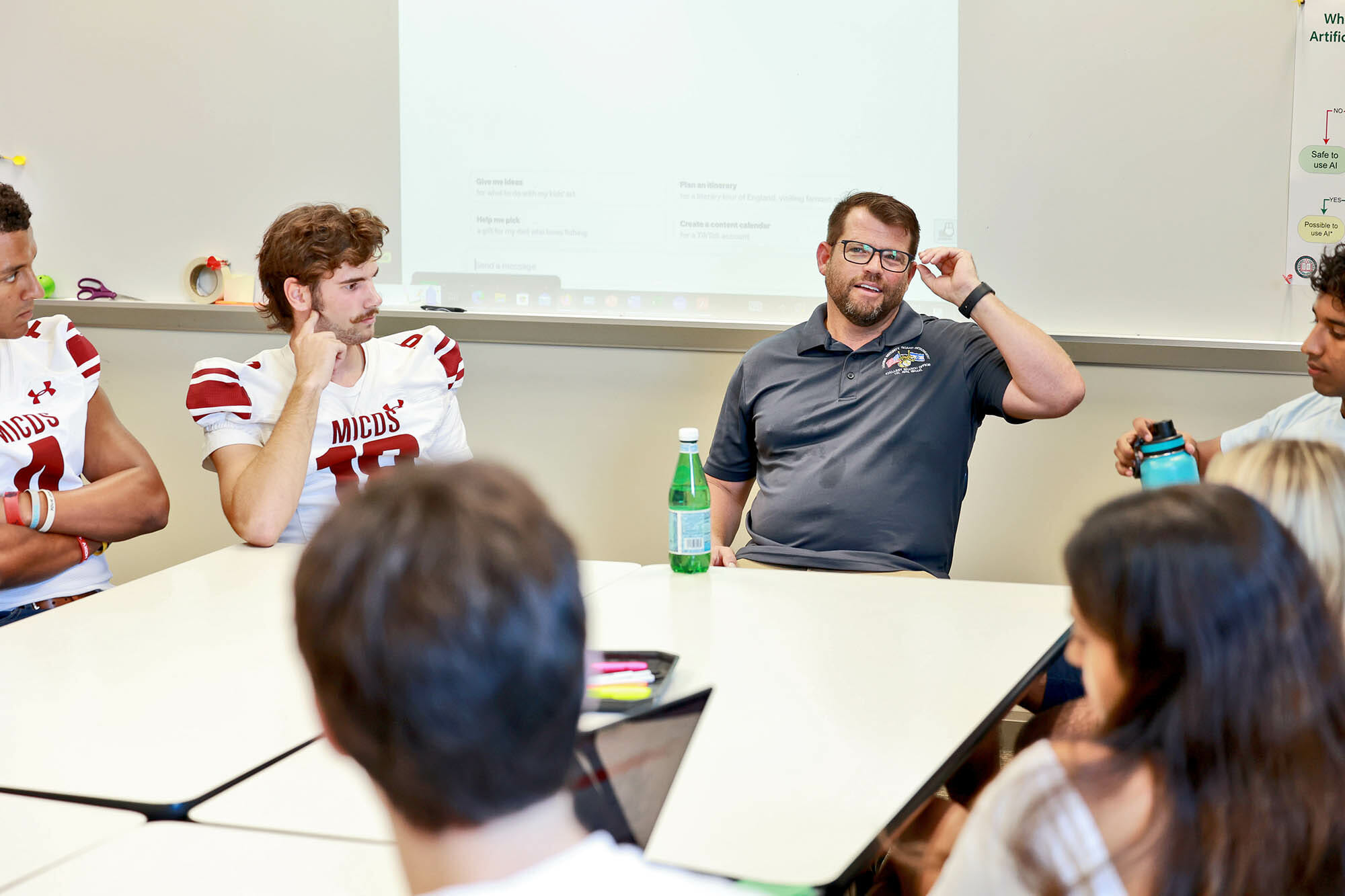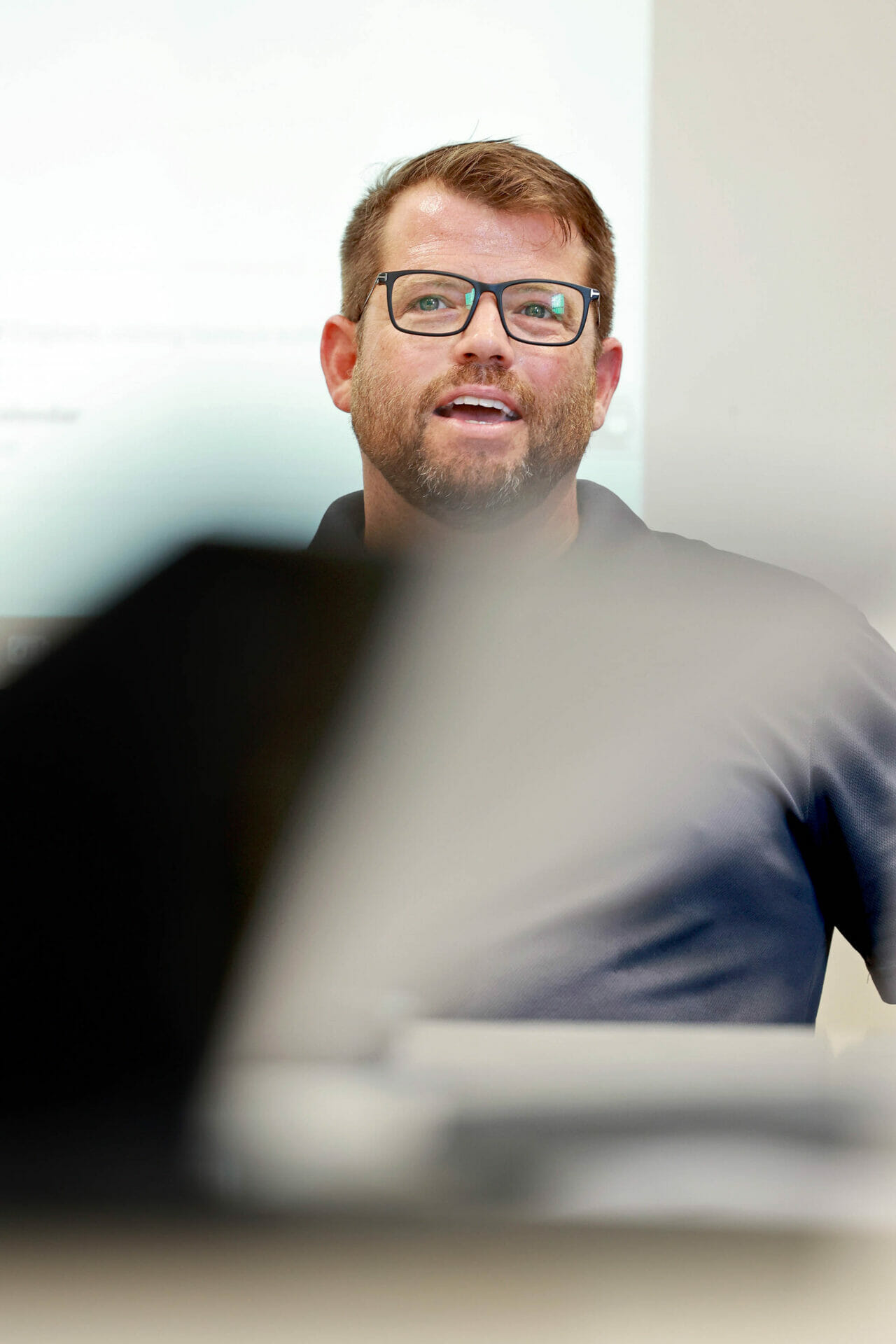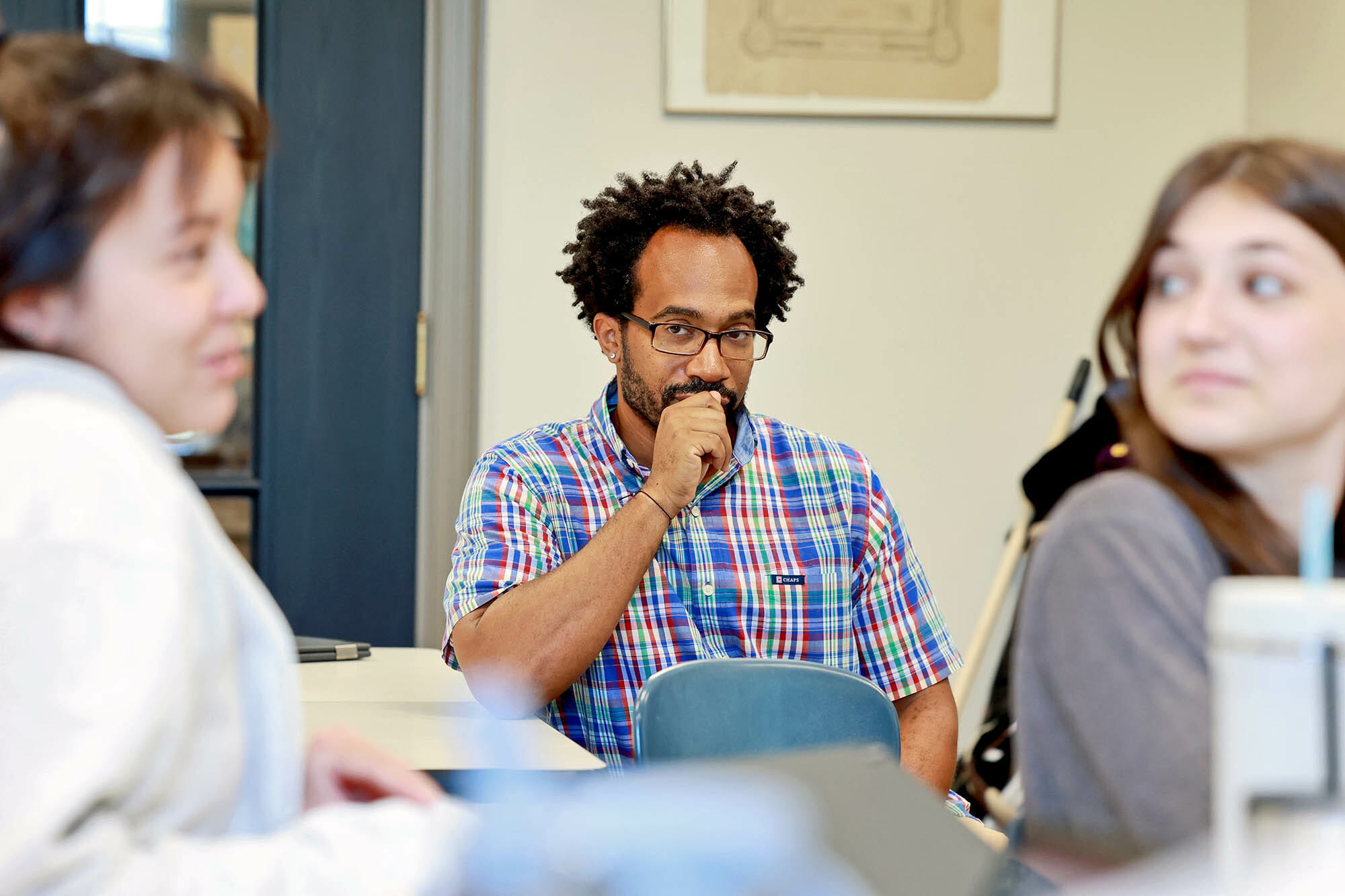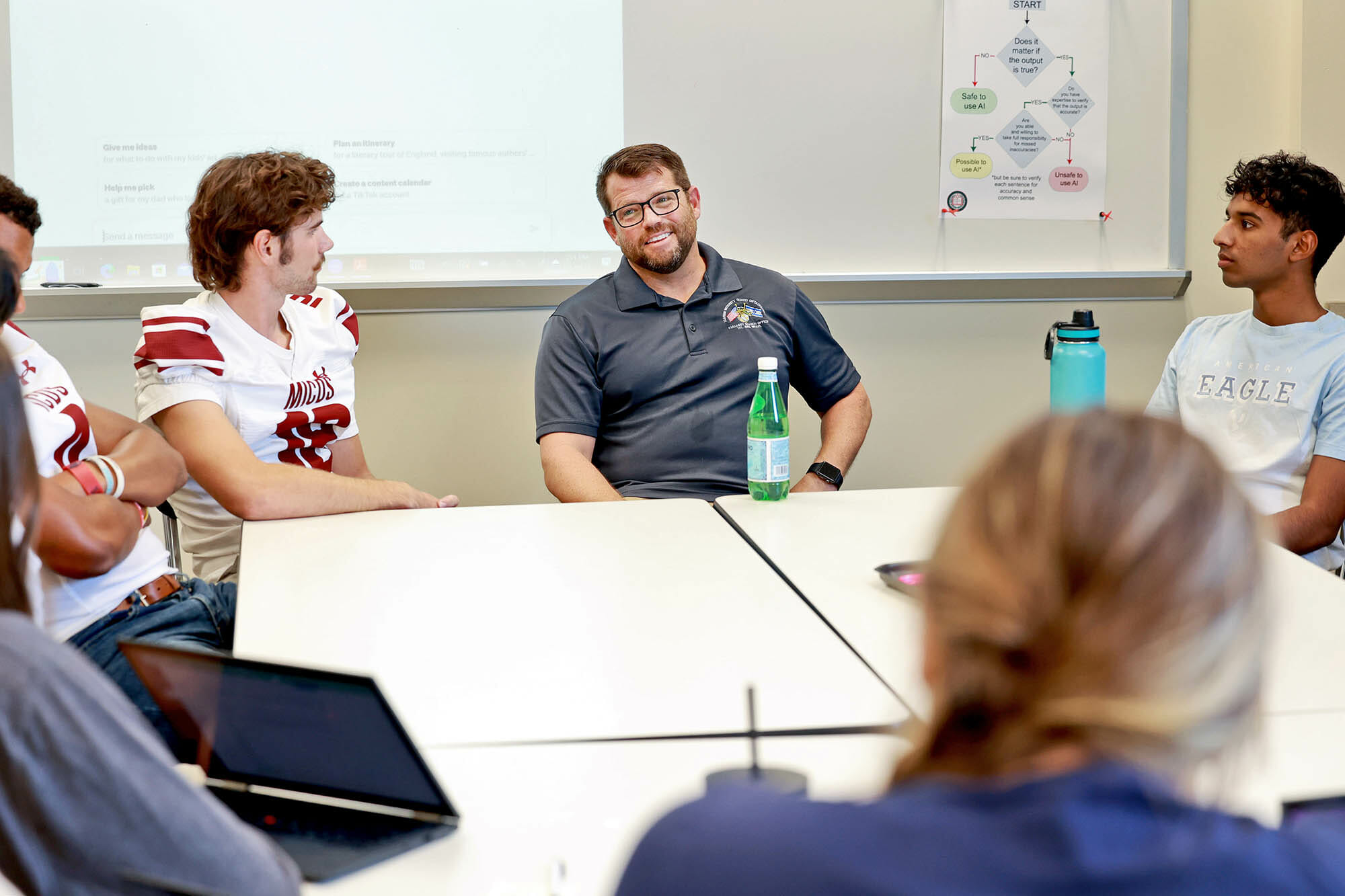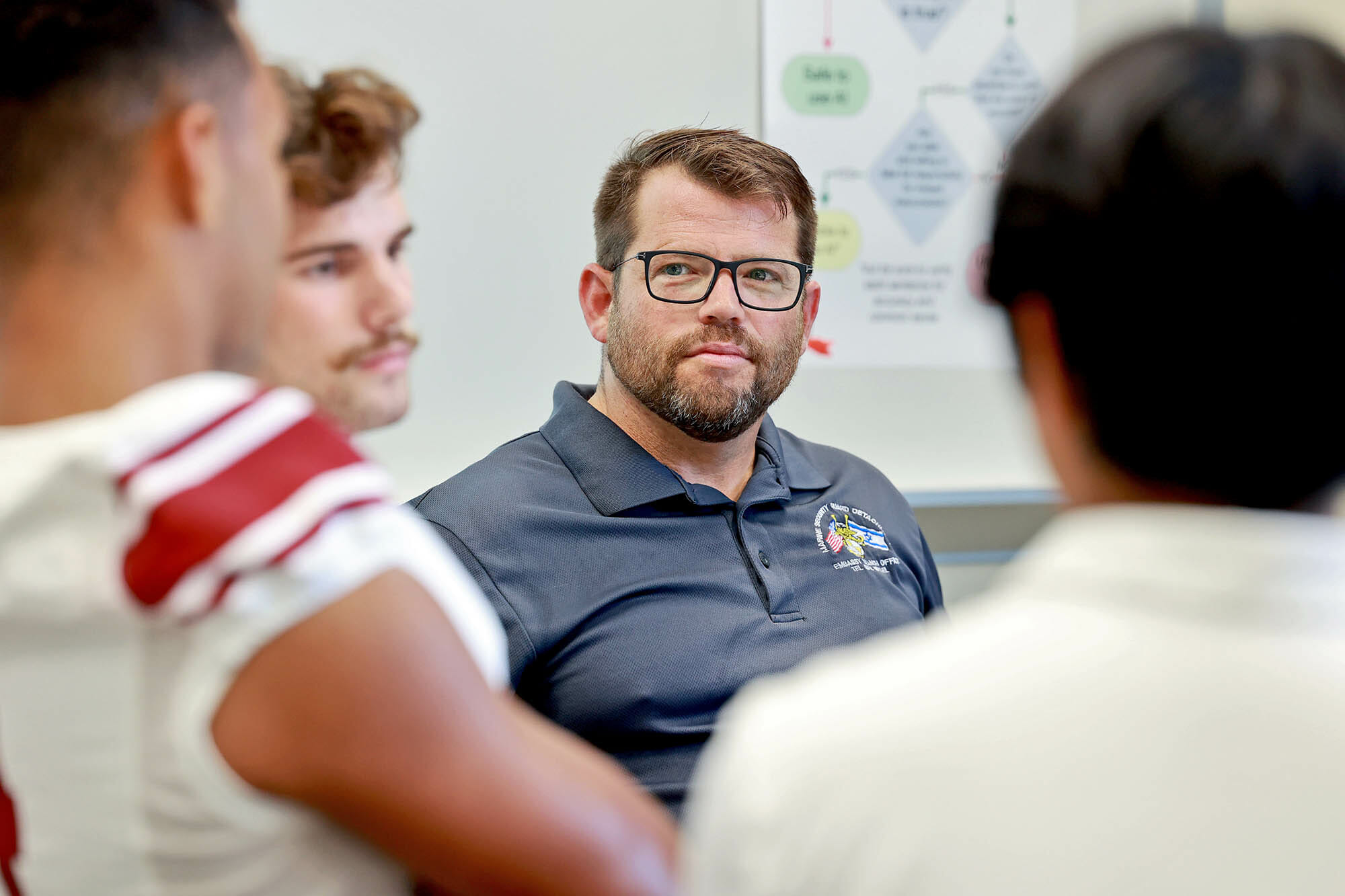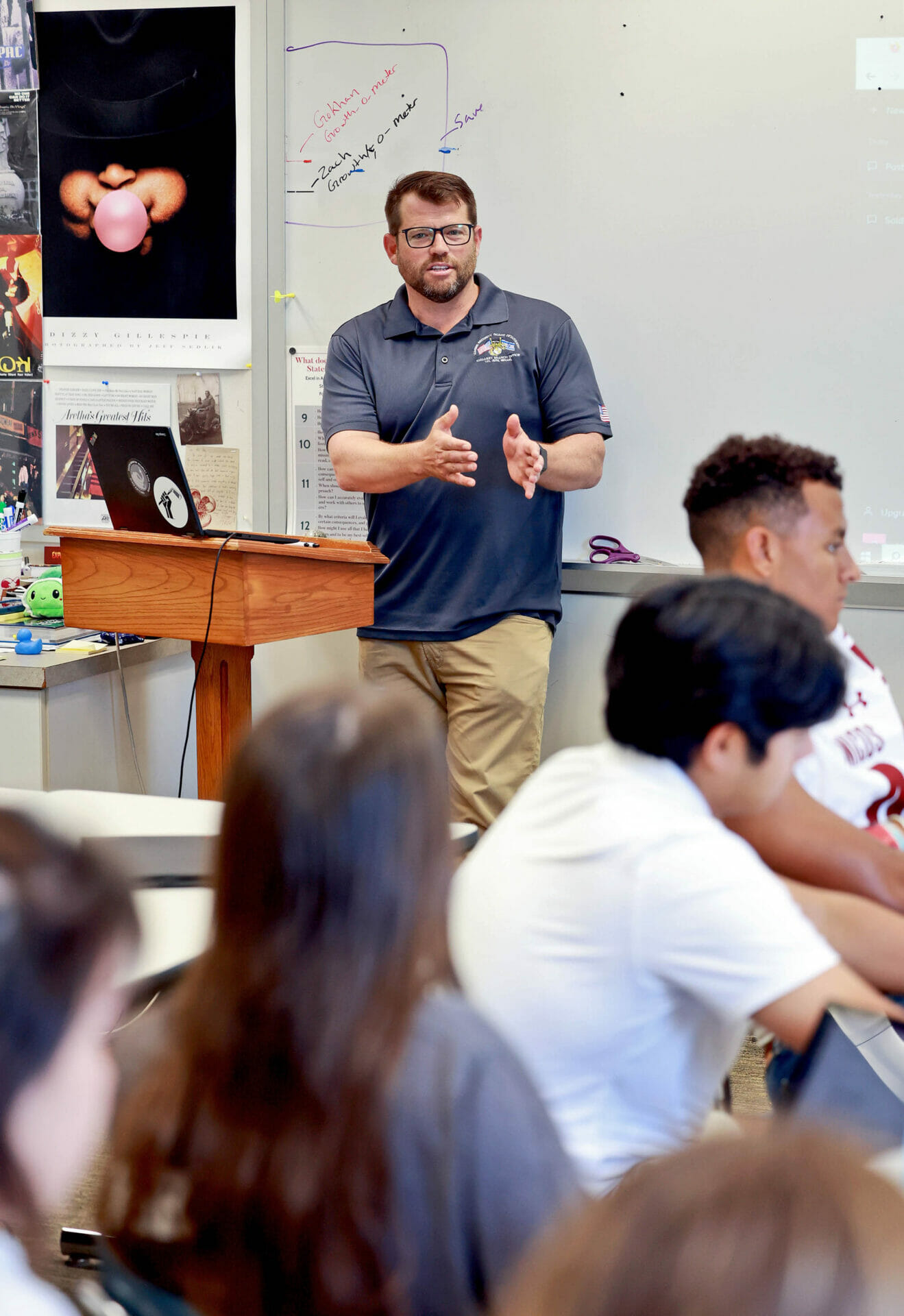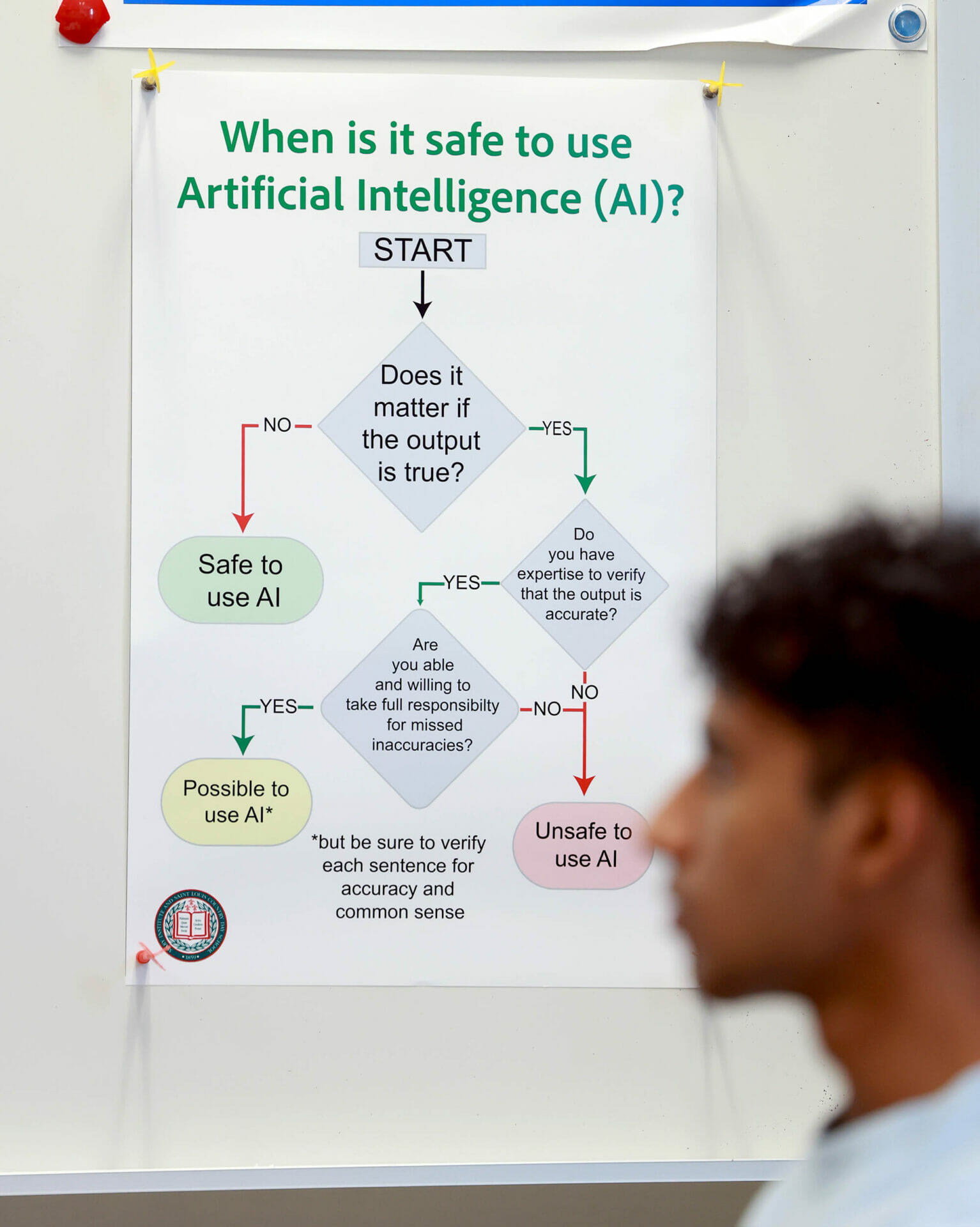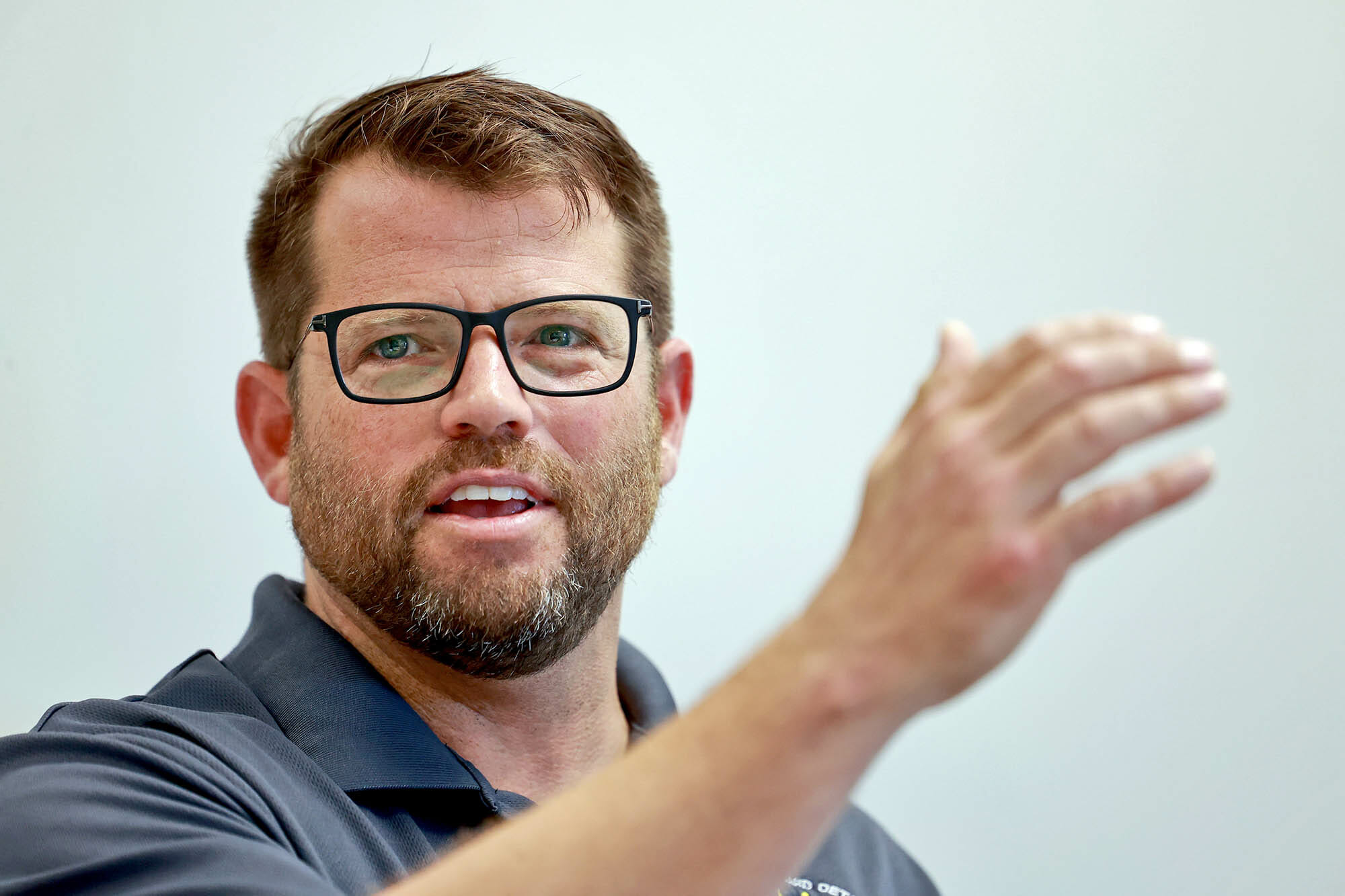I want Turkey! No, I want Turkey! I’ll take China. How about Japan? Who wants Poland? Anyone want Poland? I’m Poland!
Upper School History Teacher Changa Bey’s senior elective, The History of World War II, was off to an enthusiastic start as students jockeyed to choose a country to research. Their mission? Assume the role of an intelligence officer for one of the countries impacted by the Munich Conference and develop an intelligence report. The challenge? Use ChatGPT to create a conversation that includes your position, country, leaders, event, responsibility, etc. While the ChatGPT report provides a solid foundation, Bey warned that it will be missing many specifics. Using primary and secondary sources, students added additional information and facts to the report in order for it to be informative, accurate, and actionable for the leaders of your nation. Final intelligence reports require the ChatGPT conversation thread, five additional sources (two primary, as a minimum), and an annotated bibliography to support the report itself.
To get his new intelligence officers a good start, Bey brought in a guest speaker: Lieutenant Commander Ryan Weber, Ret., of the United States Marine Corps and Navy, and a seasoned intelligence officer. Weber began by offering a brief overview of his military career, noting that he began by enlisting in the Marine Corps and working on Harrier jets before attending the U.S. Naval Academy in Annapolis. He was a freshman when 9/11 happened, and he recalls walking into class and hearing rumors about airplanes crashing into the Twin Towers. It was his first class of the day, naval history, and he watched both towers fall in New York with his professor. Within five minutes, he said, she was able to explain Afghanistan, Al Queda, Russian connections, and how the world would be affected. “She could essentially predict the next ten to 20 years,” Weber said, giving that experience the credit for his change of major to history. “It can be a superpower to be able to use history to look into the future.”
After graduation, he traveled the world, working as an intelligence analyst in many different countries. “The more I worked around the world, the more I realized how much we have in common,” he told the students. “You can see the universal truths and motivations that everyone has. Whether you’re a subsistence farmer in the Middle East or a Ph.D. in another part of the world, we all have stuff in common.”
He also spoke about the importance of diversity in the field of intelligence analysis.”The intelligence community needs to bring people in from all different backgrounds to better understand the world,” he said, noting that diversity of thought, culture, experience, and ideas enhance the work of the larger intelligence community. “Whether it’s the CIA, the DIA, NGA, or the NSA…we’re all on a team and the goal is to have as much of an understanding of the world as possible. There are new media, signals, and pictures, and we are fusing that together and offering our leadership the best understanding of the world as we can.”
Weber explained that the ability to have an impact on what world leaders consider when they’re developing plans or responses is humbling. He described working on national security reports, knowing that they could soon be briefed to people as high as the president of the United States. “Because of the job and training, I was able to do that. It was humbling and super cool.” He challenged the students to imagine they were informing the President with their intelligence reports. Weber worked with all branches of the U.S. military and different branches of the government. When he was stationed in Israel, he worked for the ambassador.
Weber retired from the Navy and is now an analyst for Netskope, a cybersecurity company in Clayton, Missouri. He explained that he uses ChatGPT every day in his job, and he always starts first with saying, “I know nothing; how would Generative AI attack a problem differently.” He feels the invention of the AI software ranks as high as the invention of the Internet, and higher than the iPhone, and sees it as a powerful tool. “It makes life easier,” he said, “but it raises the bar on what we should be doing.” He then went through a quick lesson on reverse-engineering the assignment, using the app to provoke questions that he can then use primary sources to find the answer. There are two questions he starts with: What is going on in the world, and what questions should we be asking?
He then divides the “big picture questions” into different categories, delving into “how well do we understand what’s happening” and “what can we add to help keep leadership informed.” ChatGPT is useful for spurring lightbulb moments, sparking questions that you might otherwise not think to ask. Starting with the big picture leads users to identify primary sources that will allow them to write a solid intelligence report. Then you’re off and running, looking for primary sources—in this case a document like the Munich Agreement—and there’s your answer.
How should students approach the overwhelming amount of information available? It’s a problem that the intelligence community also struggles with. Weber once again relies on a series of questions. “You have to have a reason to write everything,” he counseled. “What’s the thesis? How are you informing leadership? How does this factor into the bigger picture? Why is someone above me wasting time reading this report?” There is an abundance of data available today, and it’s the analyst’s job to filter through it to pull what is essential for a firm understanding that underpins decisionmaking. “It’s about details, accuracy, and usability,” he said. “You can’t answer the question at the tactical level if you don’t understand how it feeds into the bigger picture, so you need the background. All you can do is do your best.”
“Artificial intelligence is a tool that will impact the rest of your careers and the rest of your lives,” said Weber. “Get on and keep learning more.” Still, he stressed, it’s important to recognize its limitations. “AI will absolutely hallucinate answers and give you wrong answers. If you question the sources it’ll back down immediately and say you’re right, which tells me it’s still fallible,” he said. The software continues to evolve and develop, so Weber recommends staying current on new iterations and testing it along the way.
The MICDS History Department developed a helpful flow-chart for students to determine whether its safe to use artificial intelligence with their work:
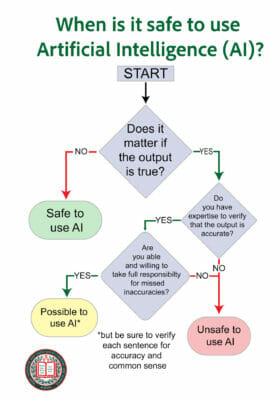
“I thought that Lt. Commander Weber was very interesting,” said Julianna Resch ’24. “He opened a new door for me to look at our past and predict what we should do and what will happen as well. By integrating this new mindset into my research process, I was able to go more in-depth with the intelligence report.”
Virginia Portell ’24 said, “I love learning about WWII, and especially the intelligence side of it. I’ve read multiple books, both historical fiction and non-fiction (The Paris Apartment, Wise Gals, The Rose Code) about intelligence officers in France, England, and the U.S., so I wanted to branch out a little bit. However, when I signed up for the class, I had no idea that we’d have the chance to speak to an intelligence officer. That’s the field that I want to go into, and his background in service, as opposed to being a civilian, meant that he could answer super specific questions that I hadn’t been able to answer using the internet. Our project is to create an intelligence report, and since that is what intelligence officers do, having a former one explain the format and purpose made the whole process easier to understand and really made a career in that field seem more achievable!”
